Subsea glider peers into secret lives of BC whales
Array
Array
A mission to deepen our knowledge of rare and threatened baleen whales and help protect them from ship strikes is underway off Flores Island in Clayoquot Sound, led by David Duffus, director of UVic’s Whale Research Lab.
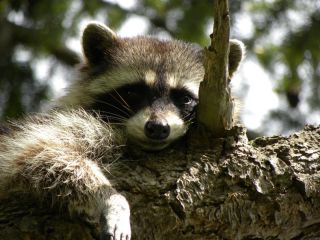
It’s long been known that animals living without fear of predation will thrive and reproduce faster. Think rabbits and deer. What hadn’t been demonstrated is that fear of large carnivores—or lack of it—has ripple effects on the whole web of life.
Research published in the journal Science by a team led by Dr. Chris Darimont, the Hakai-Raincoast professor of geography at UVic, reveals new insight behind widespread wildlife extinctions, shrinking fish sizes and disruptions to global food chains.
An experiment involving raccoons and speakers emitting the sound of barking dogs on tracts of beaches on British Columbia’s Gulf Islands shows that the fear of large carnivores has a positive impact on ecosystem health. The study led by University o…

Artists and biologists collaborate on flatfish camouflage response study The gap between the molecular basis of fish vision and the colour calibrations of a large-format printer may seem as wide as the space between the biology and visual arts departments, but a recent collaborative project brought the two much closer together.
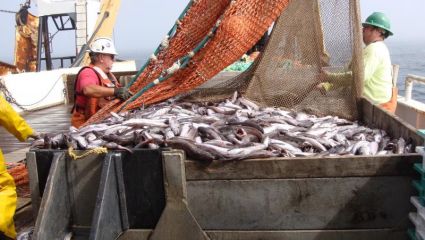
You need not look far to find the world’s “super predator,” a term used by UVic scientists to describe how human dominance has bred an unrelenting predacious global culture that threatens nature’s balance. Research published in the Aug. 21 edition of the journal Science by a team led by Dr. Chris Darimont, the Hakai-Raincoast professor of geography at the University of Victoria, shows how extreme human predatory behavior is responsible for widespread wildlife extinctions, shrinking fish sizes and disruptions to global food chains.
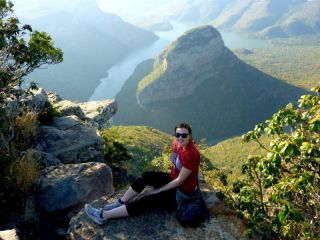
From touring animal shelters in South Africa to analyzing cells from human blood or harvested mouse spleens in Vancouver, Stacey LeDoux’s UVic experiences have been a little different than most. LeDoux graduates this month from UVic, and as she waits to hear back about her med school applications, she’s reflecting on her time as an undergraduate. “UVic not only gave me the opportunity to travel, but to explore my interests, develop my skills, and apply my learning,” she says.
Every summer for the last 10 years, high above the University of Victoria’s athletic fields, a little family has been going about its daily business, largely unnoticed, except by photographers and curious onlookers willing to kink their necks and sq…
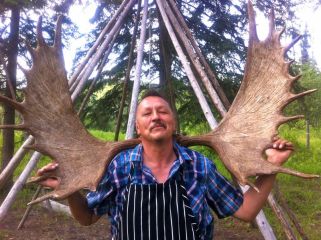
Art Napoleon was already a national figure when his TV show, Moosemeat & Marmalade, premiered on APTN in January 2015. He had performed at the Canadian Aboriginal Music Awards, opened for Buffy Sainte-Marie and been interviewed by veteran correspondent Tom Hawthorn for the Globe and Mail in September 2010 for the release of his album Creeland Covers, sung almost exclusively in Cree.
University of Victoria wildlife expert Dr. Chris Darimont is this year’s winner of the Distinguished Academics Early in Career award from the Confederation of University Faculty Associations.
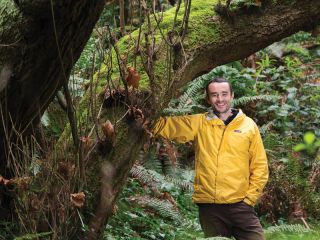
UVic wildlife expert Dr. Chris Darimont—a research pioneer on BC’s coastal wolves and bears, and a passionate advocate for science-based conservation policy—is this year’s winner of the Distinguished Academics Early in Career award from the Confederation of University Faculty Associations of BC (CUFA-BC).
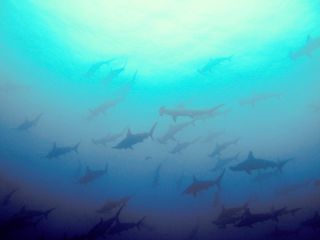
A new study led by researchers at the University of Victoria raises serious concerns about the ability of marine protected areas (MPAs) to effectively protect wide-ranging iconic species, such as sharks and rays.
New research led by researchers at the University of Victoria raises serious concerns about the ability of marine protected areas (MPAs) to effectively protect wide-ranging iconic species, such as sharks and rays.
New genetic evidence holds hope for the ring-tailed lemur, despite continued habitat disturbance and a growing illegal pet trade. The ring-tailed lemur, one of the most endangered mammals on the planet, can be bought on the beaches of Madagascar for…
Grizzly bears are moving onto islands along the central BC coast, according to new research by Christina Service, a University of Victoria PhD candidate in geography. Collaborating with other wildlife scientists from UVic, the Kitasoo/Xais-xais-oper…